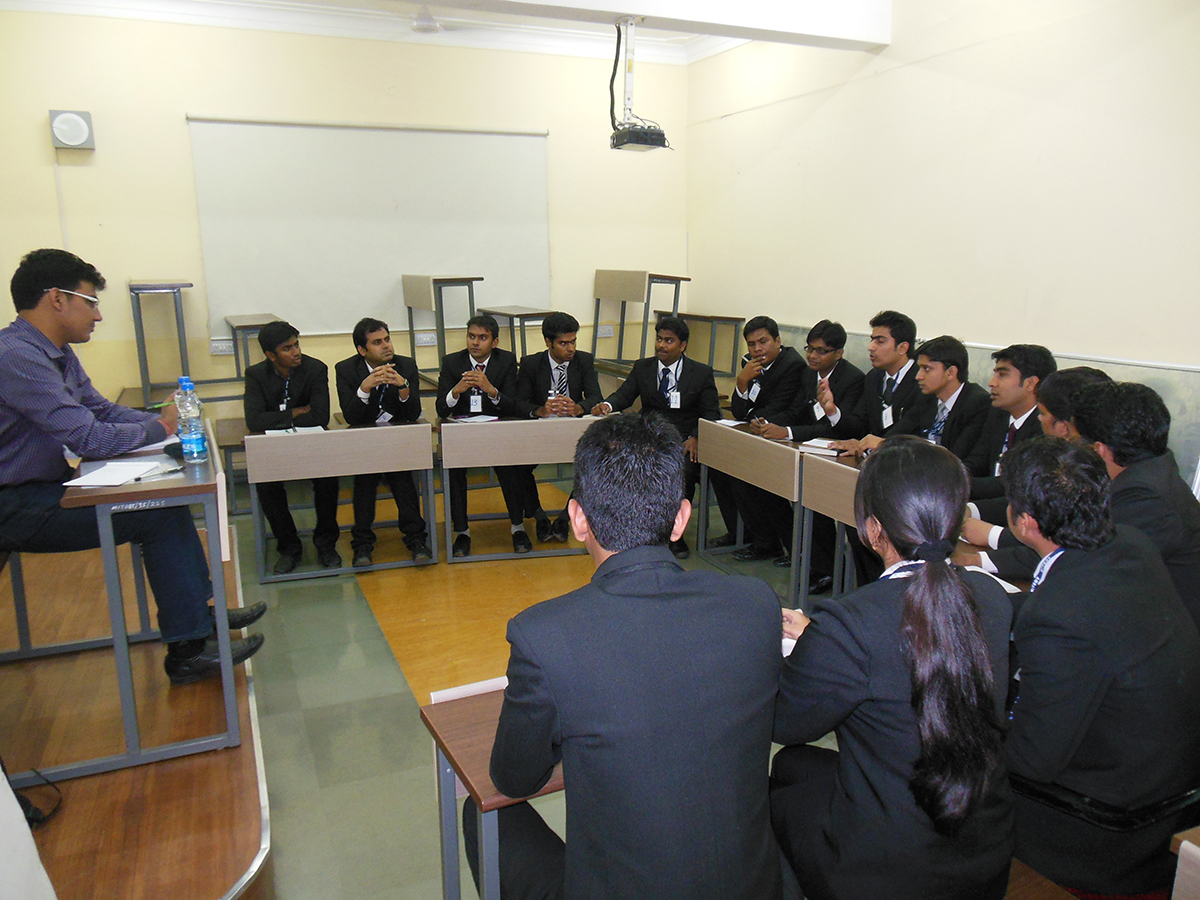All the discussion about group discussion
It is the month of March, the time that leads up to MBA admission interviews in April/May. Everyone applying for an MBA college is gearing up for the next phase. Sahil and Nikunj are classmates from BBA. They see that the talk in most online forums is revolving around one topic – group discussion.
Sahil is someone who enjoys the prospect of group discussions. He has competed in events that involved group discussion rounds and has been successful at them. Sahil does not understand why so many applicants are in frenzy about the GD rounds. He speaks his mind to Nikunj.
Sahil- ‘I do not understand all the fuss about group discussion.’
Nikunj- ‘Easy for you to say, I am pretty nervous about it. Not everyone is a GD champ like you.’
Sahil- ‘Hey… it’s not as if I was born to crack any group discussion! I happen to find it easy, just as you find it easy to talk to the ladies…’
Nikuj- ‘Oh come on! I’m serious here, how do you keep your wits in a GD? Everyone is so keen to drive the discussion and stand out. Seriously, I want to know your secret!”
Sahil- ‘Haha… there is no secret my friend! But I’ll be more than happy to tell you how I approach GDs.’
The habits of GD winners
As Sahil tells us, doing well in a group discussion is a matter of approach. There is no special secret that one needs to know to crack a group discussion. Following are some of the traits that make some people consistently good at GDs.

Adapt to your environment
Each phase of the MBA admission process tests a different quality/attribute. Through a group discussion, the colleges are looking for someone who can drive for consensus. What this means is that one may have to play different roles when participating in a GD.
The environment of each group discussion is different. In one instance, one may have a group of loud and aggressive individuals. In another, one might have to take the lead in a group of reserved and restrained participants. The panellists and the topic that they give also influence the settings.
People who handle group discussions well are able to identify their role early on. In an aggressive group, one can try and be the calming influence, providing a broader context to the discussion. In a passive group, one may have to raise questions and bring out opinions. Defining your role will help you participate in the discussion smoothly and effectively.
It’s not about the group discussion topics, it’s about discussing them
Let’s say you are a non-engineer. The topic for the group discussion is ‘Advantages of having V-shaped engines in automobiles’. Safe to say, this is not likely to be your area of expertise.
However, just by looking at the topic there are some questions that pop up naturally? You cannot ask the obvious ‘What?’ directly, but you can ask tangential questions.
- Is this a new technology? Is it very niche or prevalent in some regions?
- Can India be considered to be ready for this technology? If not, why?
Let’s say that one person points out that road infrastructure is not up to the mark. The discussion can then be driven towards how infrastructure needs to be revamped. This is one area that you would perhaps know more about.
And this is how you can drive the discussion in your favour.
Create the opportunity to speak, don’t keep waiting for it
During a discussion, it is easy to be left out if some participants are in flow. Though it might appear rude or obtrusive to break in, keeping silent is definitely not going to help. Get into the discussion in a formal and polite way. Say ‘Sorry to interrupt you, but…’ and then present your opinion. A more natural way would be ‘That is an interesting point, can I also suggest…’ Remember, you need not argue or counter the viewpoints. Agreeing with the other participants or adding to what they are saying is natural and something that you can use to your advantage.
Take the initiative to involve everyone
Learning from the experience of past applicants, one of the most insightful GD tips is to involve everyone in the discussion. There are instances when panellists stop a discussion and ask some of the inactive participants to speak out. Although this is not necessarily a bad thing, in the true spirit of a discussion it is better to have everyone participate.
However, you might feel that trying to involve people would undermine your own chances. This is not the case as panellists will notice and appreciate your effort to make the group discussion more open.
Also, having more viewpoints will enhance the quality of the discussion. This is something that will not just benefit one individual but the whole group. Panellists will be very picky while selecting participants from a bad round of discussion. The opposite is true for a balanced, objective discussion- all participants appear in a good light.

Bring in some original perspective
Try and think of the GD phase from the viewpoint of the selectors. They have to listen to hundreds of aspirants speaking on a limited number of topics. Especially in the case of GD topics on current affairs, it is easy for the discussion to become banal.
In such a scenario, an original thought or perspective is like a breath of fresh air. Expressing your genuine opinion about the issue and providing the rationale behind it will make you stand out. Outlandish opinions can also be justified.
To quote an instance from one particular GD, the topic at hand was ‘Corruption in India’. The group made a meal out of the topic. Most participants were quoting facts and statistics and taking up the usual anti-corruption stand. One participant, however, suggested that corruption can make life easy sometimes. Using the example of accidentally breaking the traffic signal, he said he would prefer paying a small bribe rather than following the prevailing procedure of depositing his license and paying the fine at the traffic authority office.
While certainly not an ethical suggestion, it was a practical one which was welcome by the panel.
What are your key tactics to crack a group discussion? Let us know in the comments.
—
Image Source
